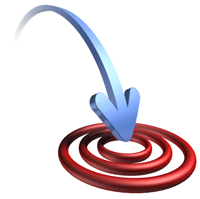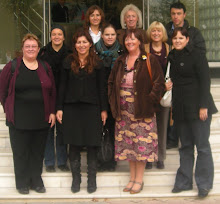
ACTIVITY 1- DIARY- A DAY IN THE LIFE OF…
PSYCHO-MOTOR SKILLS
Aim : Ability to do movements that require eye-hand coordination
- Can use some tools that require hand skills.
- Can put the objects together in a way to create new shapes.
- Can draw pictures by using different materials.
- Can draw the shapes by using different tools.
- Can fold the various materials in different ways.
- Can cut the materials in required qualities.
- Can glue the materials in required qualities.
SOCIO-EMOTIONAL SKILLS
Aim: Ability to realize own feelings
- Can tell his feelings.
- Can express his feelings through music, dance, drama, etc.
Aim: Ability to motivate oneself
- Can start doing something by himself.
- Struggles to finish his work.
Aim : Ability to realize other’s feelings
- Can express the other’s feelings.
- Can share the other’s feelings.
Aim : Ability to understand the social life
- Can tell the different roles of a person.
- Can tell the characteristics of his culture.
Aim : Ability to create objects with aesthetic value
- Can present original poem, story, song, etc.
- Can develop original products in visual arts.
- Can present his products in various ways.
- Can use real or imaginary objects in his presentations.
LINGUISTIC & COMMUNICATION SKILLS
Aim : Ability to express oneself verbally
- Can tell his feelings, ideas and dreams.
- Can explain his feelings, ideas and dreams in creative ways.
- Can report on own experiences
- Can outline what is happening in simple terms
Aim : Ability to read visual materials
- Can talk about his day by using visual materials
KNOWLEDGE AND UNDERSTANDING OF THE WORLD(COGNITIVE SKILLS)
Aim : Ability to understand the information about oneself and family
- Knows his/her house number
- Knows his/her street
- Can explain the information about the family members.
Aim : Ability to describe events and objects
- Can discuss the type of home in which he/she lives
- Can tell the features of the events or objects
- Can compare the features of the events or objects.
Aim : Ability to remember the things perceived
- Can express the event or an object again after some time.
- Recall sequences of events and routines
Aim : Ability to associate cause-result relation about certain aspects and events
- Can tell the possible causes of a certain event.
- Can tell the possible results of a certain event.
Aim : Ability to associate relation between the concepts of time
- Can tell the events in the order of happening
- Can differentiate between day and night
- Is able to match the times of the day to specific activities
- Knows yesterday was the day before
- Knows tomorrow is the day after
- Knows the names of the days of the week
- Knows the order of the days of the week
Aim : Ability to solve problem
- Can offer several formulas for the problem.
- Can choose the appropriate formula
PERSONAL-CARE SKILLS
Aim : Ability to carry out the cleaning rules
- Can use the cleaning items correctly.
- Takes responsibility of personal hygiene
- Keeps his environment clean.
ACTIVITY 2- RECIPE
PSYCHO-MOTOR SKILLS
Aim : Ability to do movements that require eye-hand coordination
- Can pour the objects from one container to another.
- Can fold the various materials in different ways.
- Can cut the materials in required qualities.
- Can use the kitchen tools properly
Aim : Ability to do movements by using gross motor skills
- Can carry the objects in different weights
- Can walk a proper distance by carrying the objects in different weights.
Aim : Ability to do movements by using fine motor skills
- Can shape the materials with hands.
SOCIO-EMOTIONAL SKILLS
Aim : Ability to motivate oneself
- Struggles to finish his work.
- Starts doing something by himself.
- Concentrates for lengthening periods when inappropriate tasks
- Explore and experiment confidently with new learning opportunities
Aim : Ability to manage the relations with the others
- Is willing to take responsibility in the group
- Accomplishes his responsibilities
- Interact positively with a number of children
- Helps younger children
- Can learn from older children
- Interact with the adult who leads the activity
- Acknowledge the need for help and seek help when needed
LINGUISTIC & COMMUNICATION SKILLS
Aim : Ability to express oneself verbally
- Responds to simple instructions
- Is able to express a request independently
Aim : Ability to enlarge vocabulary
- Realize the new words while listening.
- Name the kitchen utensils
KNOWLEDGE AND UNDERSTANDING OF THE WORLD(COGNITIVE SKILLS)
Aim : Ability to describe events and objects
- Is able to describe and name a range of different foods
- Understands that some food comes from plants and some food from animals
Aim : Ability to measure the objects
- Compare heavy and light
- Differentiate between full and empty
- Compare two different containers that hold more
- Understand the language of size
Aim : Ability to do simple addition and subtraction with the objects
- Can do simple addition and subtraction by using the ingredients
Aim : Ability to associate cause-result relation about certain aspects and events
- Understands that food and water are essential for living
- Understands that certain food are good for you
PERSONAL-CARE SKILLS
Aim : Ability to carry out the cleaning rules
- Take responsibility for personal hygiene
- Take responsibility for selecting and clearing away own materials
- Behave acceptably at mealtimes
- Careful about the cleaning of the food.
- Aware of the healthy and non-healthy food
Aim : Ability to protect oneself from the accidents and dangerous situations
- Can tell the dangerous situations.
- Stay away from the dangerous situations.
- Ask for help in the time of danger.
ACTIVITY 3- THE SONG
PSYCHO-MOTOR SKILLS
Aim : Ability to do coordinated movements
- Can do coordinated and rhythmic movements
- Shows willingness, appropriate behaviour and enjoyment when participating in musical activities- vocal and instrumental
- Is able to use a steady beat whilst singing, clapping, tapping or using percussion instruments
SOCIO-EMOTIONAL SKILLS
Aim : Ability to realize own feelings
- Can express his feelings through music, dance, drama, etc.
.Aim : Ability to create objects with aesthetic value
- Can walk and dance with aesthetic movements.
- Imitates and learns simple rhythmic sounds and melodic patterns
- Creates, selects and arranges sounds in response to various stimuli
- Enjoys and appreciates live and recorded music
LINGUISTIC & COMMUNICATION SKILLS
Aim : Ability to distinguish the sounds
- Can copy the given sounds.
- Demonstrates the ability to hear
- Conveys accurately a simple phrase or rhyme
- Recognizes rhyming words
Aim : Ability to use voice correctly while talking
- Can use his breath correctly.
- Can pronounce the words correctly
Aim : Ability to enlarge vocabulary
- Can realise the new words while listening.
- Asks the meanings of the new words.
KNOWLEDGE AND UNDERSTANDING OF THE WORLD(COGNITIVE SKILLS)
Aim : Ability to concentrate
- Focus attention on the music.
- Understand that all living things should be treated with care, respect and concern
- Respond positively to a range of new cultural and linguistic experiences
ACTIVITY 4- THE GAME
PSYCHO-MOTOR SKILLS
Aim : Ability to do coordinated movements
- Can run according to the given instructions
- Can throw and catch the objects
- Combine dancing with the rules of a game
- Imitate animals physical movements
- Keep in balance
- Play in parallel alongside other children
- Is able to use basic body actions
- Is able to use a steady beat whilst singing, clapping or tapping
SOCIO-EMOTIONAL SKILLS
Aim : Ability to manage the relations with the others
- Can start the communication by himself.
- Is willing to take responsibility in the group
- Show respect to the others’ and his rights.
- Obey the rules in the group.
- Play associatively, sometimes planning play sequences
- Take turns, share and begin to exercise self control
- Is confident in a large space
Aim : Ability to indulge
- Accepts that he can make mistakes.
- Tells his mistakes.
LINGUISTIC & COMMUNICATION SKILLS
Aim : Ability to use voice correctly while talking
Can use his breath correctly.
Can pronounce the words correctly
Aim : Ability to express oneself verbally
- Uses speech to describe someone or something
- Be able to portray a character in role play
- Tell a simple story
- Is able to understand a simple story
- Responds to instructions and sounds
Aim : Ability to associate relation between the concepts of time
- Sequences a known story
KNOWLEDGE AND UNDERSTANDING OF THE WORLD(COGNITIVE SKILLS)
Aim : Ability to remember the things perceived
- Recognizes and identifies actions through observation.
- remember rhymes, rhythms and lyrics and use them in future play
Aim : Ability to focus
- Concentrate for lengthening periods when involved in appropriate tasks
- follow the rules of a game
PERSONAL-CARE SKILLS
Aim : Ability to protect himself from the accidents and dangerous situations
- Can tell the dangerous situations.
- Stays away from the dangerous situations.



